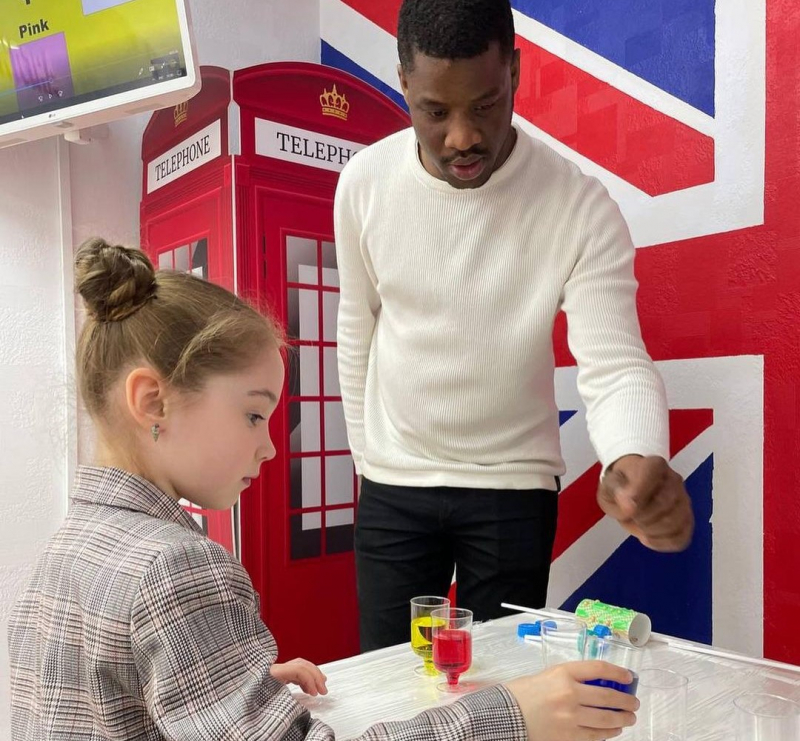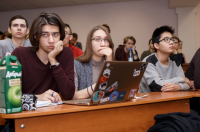First off, if you’re employed at the university where you’re studying, you do not need any special permit. The only documents required are your passport, a valid migration card, SNILS (a government-issued social security card), and a certificate of no criminal record, which is easily obtainable at a local public services office (МФЦ). At ITMO, the International Faculty Support Office guides you through the entire process. If you’re looking for a job at ITMO, you can find open positions here, or consider approaching a lab or department you’d like to work in – they might have something that matches your skillset. You should also keep an eye on project vacancies in ISU: simply go to Личный кабинет (My ISU) – Образование и наука (Education and science) – Вакансии по проектам (Project vacancies) for research-based opportunities.
At ITMO, the Career Services Center acts as the connecting link between students and employers, offering support at all stages of young specialists’ careers. Depending on your interests, they offer various jobs and internships both at ITMO and beyond.
If you find a job outside the university and are on a student visa, you will need to acquire a work permit. It is issued to students who are enrolled at state-accredited universities on a full-time basis. This permit is valid for only a year but can be renewed. It allows students to work in a specific occupation and in the region (city) where their university is located. Permits are renewed on the condition that you still work in the same capacity and region. Otherwise, you will have to apply for a new one.
The permit is issued by a regional office of the Main Directorate for Migration Affairs, which you will need to visit in person after you have received an employment contract from your employer. The processing usually takes up to 10 days. You’ll need to supply the following documents:
- An application
- Passport
- Migration card
- A fee receipt (around 3,500 rubles / $63)
- Your employment contract
- Medical certificates confirming you’re free from infectious disease/drug dependency and are HIV-negative
- A statement from the university confirming your enrolment as a full-time student
Getting employed in Russia: an international student’s account
All this bureaucracy might seem a bit intimidating, especially for someone who is new to the country. To guide you further, we asked Michael Batsa, an international student from Ghana and a recent ITMO graduate, to relay his experience of finding a job and working in Russia. He also has a pro-tip in the end for all newcomers who are looking for opportunities in the city.

Michael combined his studies with teaching English to young kids. Photo courtesy of the subject
1. Where did you work?
I worked as an English teacher at two schools, namely Britanika and BiG English. During my time in Russia, I found that international students often work as foreign language tutors. These are far from the only options, however.
2. What is the best way to find a job?
The best thing to do is to sign up on websites such as repetit.ru (for teachers) and profi.ru (for various specialists). It is the easiest and the most convenient way to find jobs.
3. Is it necessary to know Russian well?
Russian is not a requirement. Primarily it depends on the type of job that you are doing. For instance, if you are working as a teacher, it will depend on the students and their families. If their parents speak English, it is very easy and you don’t need too much Russian since you are going to teach a foreign language.
4. Did you need a work permit?
As a private tutor, I didn’t need one. If you teach students online, you won't need it either. However, some schools might ask for a permit. And it’ll also be required at other organizations such as restaurants or offices. So it is better to have one ready.
5. Describe your experience of being a tutor in Russia
I absolutely enjoyed my time as a tutor. The experience I gained was unparalleled. It is a magical feeling to share knowledge with kids. Both the students and their parents have always been very friendly with me. I have bonded with all of them well. It feels like they are a part of my family.
Pro-tip: Connect with people. The more you express your ideas, the better opportunities you get. Don’t be afraid of talking to new people in St. Petersburg.
If you still have questions regarding working in Russia, you can get in touch with the International Faculty Support Office by writing to them at inv@itmo.ru.




